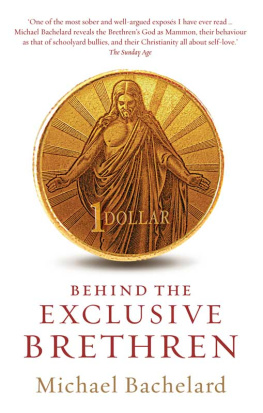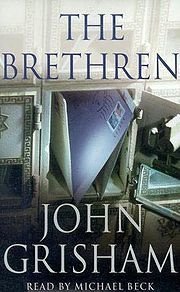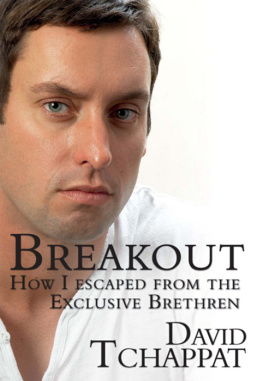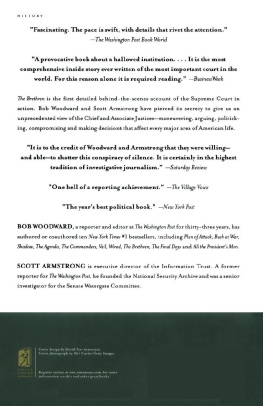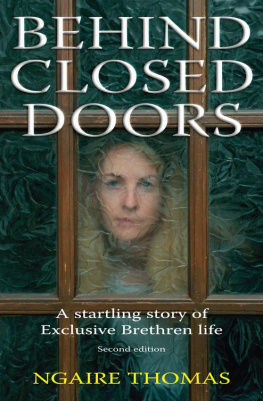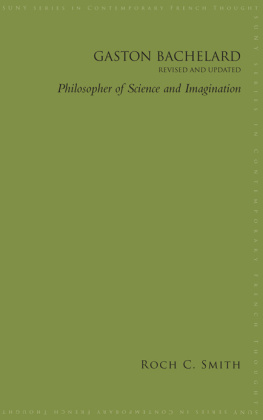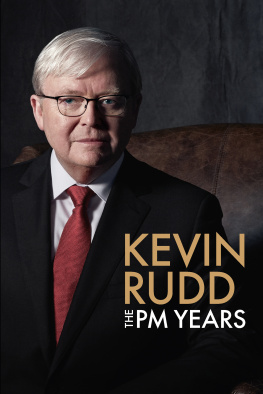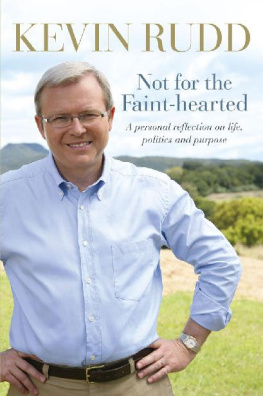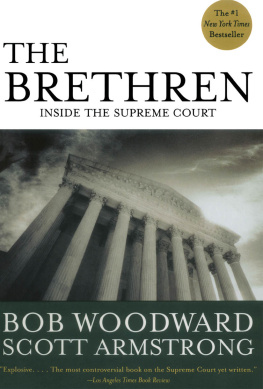
Scribe Publications
BEHIND THE EXCLUSIVE BRETHREN
Michael Bachelard is an Australian journalist and author whose first book, The Great Land Grab: what every Australian should know about Wik, Mabo and the Ten-Point Plan , was published in 1997. In 1998, he joined The Australian to work in its Melbourne bureau, where he was the workplace relations writer and, later, the Melbourne business and finance editor, and the Victorian political reporter. In 2005 he was awarded a Jefferson Fellowship in journalism, and travelled to the US, China, and Japan for a study tour into Chinas growth and burgeoning influence.
Michael Bachelard became part of The Age s investigative team in 2006, and he now writes for The Sunday Age . In 2008 he won a Quill award for the best news report in print.
This book is dedicated to those people, both within and outside the Exclusive Brethren, who have suffered, and who suffer now, under the doctrine of separation .
Scribe Publications Pty Ltd
PO Box 523
Carlton North, Victoria, Australia 3054
Email: info@scribepub.com.au
First published by Scribe 2008
Reprinted 2009
This edition published 2010
Copyright Michael Bachelard 2008
All rights reserved. Without limiting the rights under copyright reserved above, no part of this publication may be reproduced, stored in or introduced into a retrieval system, or transmitted, in any form or by any means (electronic, mechanical, photocopying, recording or otherwise) without the prior written permission of the publisher of this book.
National Library of Australia
Cataloguing-in-Publication data
Michael Bachelard, 1968
Behind the Exclusive Brethren
New ed.
9781921753848 (e-book.)
Plymouth Brethren. Plymouth BrethrenAustraliaPolitical aspects. Religion and politicsAustralia. Political planningAustralia. AustraliaPolitics and government21st century. AustraliaReligion21st century.
289.9
This project has been assisted by the Australian government through the Australian Council for the Arts, its arts funding and advisory body.
www.scribepublications.com.au
Contents
Part I: History
Part II: People
Part III: Politics
A Note on Terminology
Throughout this account I refer to the Exclusive Brethren, and use the term the Brethren as a convenient abbreviation. But this group is just one of many different shades of Brethrenism, whose nomenclature varies in different parts of the world. All of the different groups sprang from the early movement that began in Ireland and England in the late 1820s, which became known as Plymouth Brethren. But successive splits divided the movement into two broad camps: the Open and Closed Brethren. There are many subsets of these different movements, which go by different names, usually denoting when they split. There are the KellyLoweContinental Brethren, the Darbyites, the Tunbridge Wells or Natural History Hall Brethren, and others.
This book is about the sect known in Australia and New Zealand as the Exclusive Brethren, and elsewhere variously as the Taylorites and the RavenTaylorHales Brethren, The Jimmies, The Connexional Brethren, and Plymouth Brethren Number 4. They have traditionally resisted adopting a name themselves, but have done so more recently. The most powerful sign of this is that, when they set up their own website at www.theexclusivebrethren.net, they described themselves as The Exclusive Brethren Christian Fellowship.
Introduction
On 7 August 2007, the long era of John Howard, Australias prime minister and the member for Bennelong, was drawing to its close. It was a Tuesday, and a very busy one for the man who was staring down the barrel of an election he was about to lose.
Just the night before, Howards dramatic intervention in Aboriginal affairs in the Northern Territory had passed the Lower House. That morning, Newspoll had released another terrible set of numbers for Howard, and the Reserve Bank had decided to hike the official interest rate to a 10-year high of 6.5 per cent. Howards policy to directly fund the Mersey hospital in Tasmania was beginning to unravel, as was his lavish WorkChoices advertising campaign.
Yet, in the midst of this pre-election political frenzy, the prime minister found space in his schedule to meet up with some old friends. I was in Canberra and I greeted Mr Howard and enquired from him whether Mr Hales could meet him for a short discussion, recalls the Exclusive Brethrens main man in Canberra, Warwick John.
Howard gave him the nod, and John immediately phoned the Sydney-based world leader of his sect, Bruce D. Hales, aka the Man of God, the Elect Vessel, Mr Bruce. Hales donned his tie, collected his security guard, and went to the airport to board his private jet. Also aboard were his brother, millionaire pump-supplier Stephen Hales, and another Sydney pump salesman, Mark Mackenzie. The three Exclusive Brethren elders and political lobbyists flew to Canberra where, that same afternoon, they were signed through security, probably by Stephen Hales using his special parliamentary pass, and they walked into Howards office for a meeting.
The Exclusive Brethren is a conservative Christian sect whose members do not vote. Even if they did, these votes would have little impact. The church has just 15,000 members in Australia, and about 43,000 worldwide a number that would be dwarfed by the crowd on a quiet day at the Melbourne Cricket Ground. (Trade unions, which Howard declared irrelevant, have 1.8 million members in Australia.)
There was no agenda for the meeting and nothing critical was discussed, only economic matters in general, Warwick John explained. Mr Howard is always interested in how small business is faring, and there was a brief discussion about TV shows concerning the Brethren. Mr Howard did not approve of the public vilification of the Brethren as a Christian church. There was general talk regarding interest rates, and the Brethren also confirmed that they were praying for Howard.
What they really talked about will probably never be known. But burning questions remained: who is this sect, and how did it come about that they had such a close relationship, such an open door, to the most powerful man in the country?
Before 2005, very little was known in Australia about the Exclusive Brethren. During that year, Greens politicians on both sides of the Tasman uncovered some unusual activity surrounding the election campaigns of Howard in 2004 and the National Partys Don Brash in New Zealand in 2005. Investigations by politicians and journalists into those campaigns revealed the hidden hand of a tiny, well-heeled religious group whose members dressed conservatively, and spoke politely and persistently to politicians but who, behind the locked gates of their assembly halls, preached a radical doctrine of separation from the world. They also discovered how close to the boundaries of legality the Brethren had been prepared to walk in order to mask their involvement in these campaigns.
These investigations uncovered the fact that the Brethrens leader, Bruce D. Hales, made soothing comments in public that they were committed to being decent, law abiding and contributing citizens of Australia but, behind closed doors, told his flock, We have to get a hatred, an utter hatred of the world. It emerged that the Brethrens lobbying of politicians had been decades-long, and very successful they had carved out a number of exemptions for themselves from the laws that govern others, by making special requests on the grounds of religious conscience. Also emerging was a hidden community of former sect members, damaged and devastated by the loss of their families to a group that they insisted was an oppressive cult.
Next page
